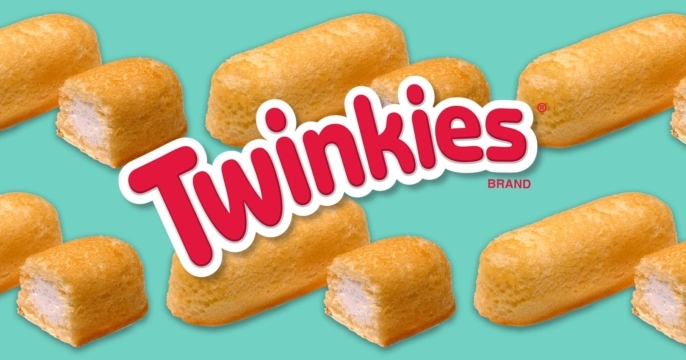
The Role of Marketing in Mergers & Acquisitions (The Tale of the Twinkie)
In 2012, Twinkie fans taught us an important lesson about marketing: When it comes to company valuation, customer loyalty is king.
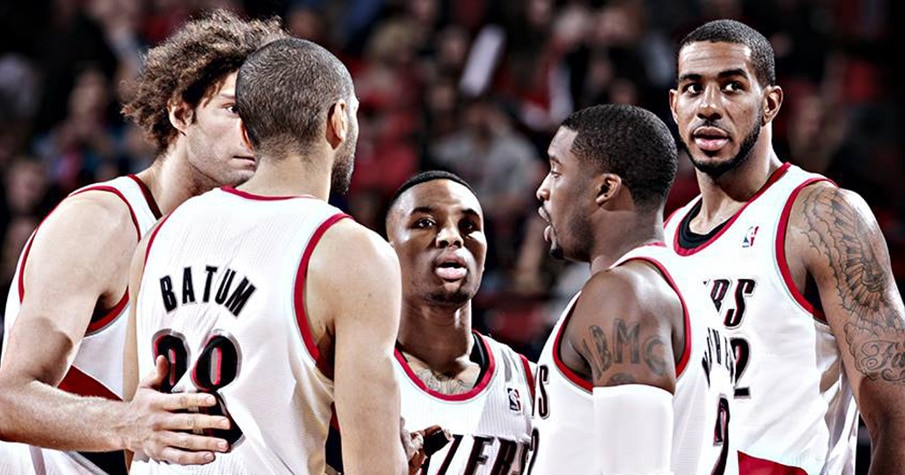
Chances are, if you live in Portland, have friends in Portland, or pay the slightest attention to professional basketball, you know that this year – for the first time in over a decade – the Portland Trail Blazers actually mattered.
The Blazers started the season in good standing, but few expected them to go far. And yet despite the team’s youth and inexperience, the Blazers proved many of the doubters wrong. For a brief moment, they seemed to be so much more than a playoff door mat.
In fact, even if you’re not a basketball fan, you owe it to yourself to watch the clip of the Damian Lillard’s .9 second buzzer-beating, series winning shot:
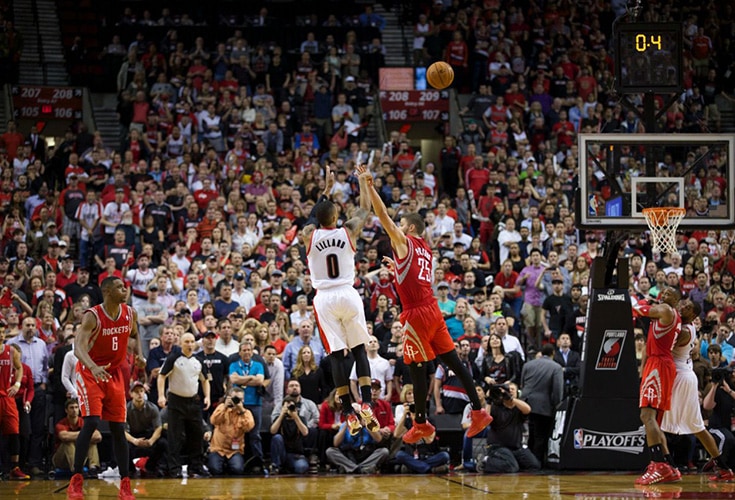
Image Courtesy of OregonLive
This shot is incredible for so many reasons that it’s hard to know where to begin. For starters, the basket clinched the win for a team that hasn’t made it past the first round of the playoffs in 14 years. Also, while many players have made clutch shots, never before has a Trail Blazer managed to send his team to round 2 with a buzzer-beater. In fact, advancing to the next round with a last-second shot hasn’t happened even once, by any team, in the last 17 years. Perhaps that’s why even in light of the Blazers’ season coming to a close, the media is still calling Lillard’s effort the greatest shot in Trail Blazers history.
Now, for some confessions: as a kid, I was an awful athlete. I took a few stabs at soccer and baseball but couldn’t manage to overcome my introverted nature and awkward growth spurts. So, I gravitated toward obscure individual sports like racquetball, badminton, and martial arts.
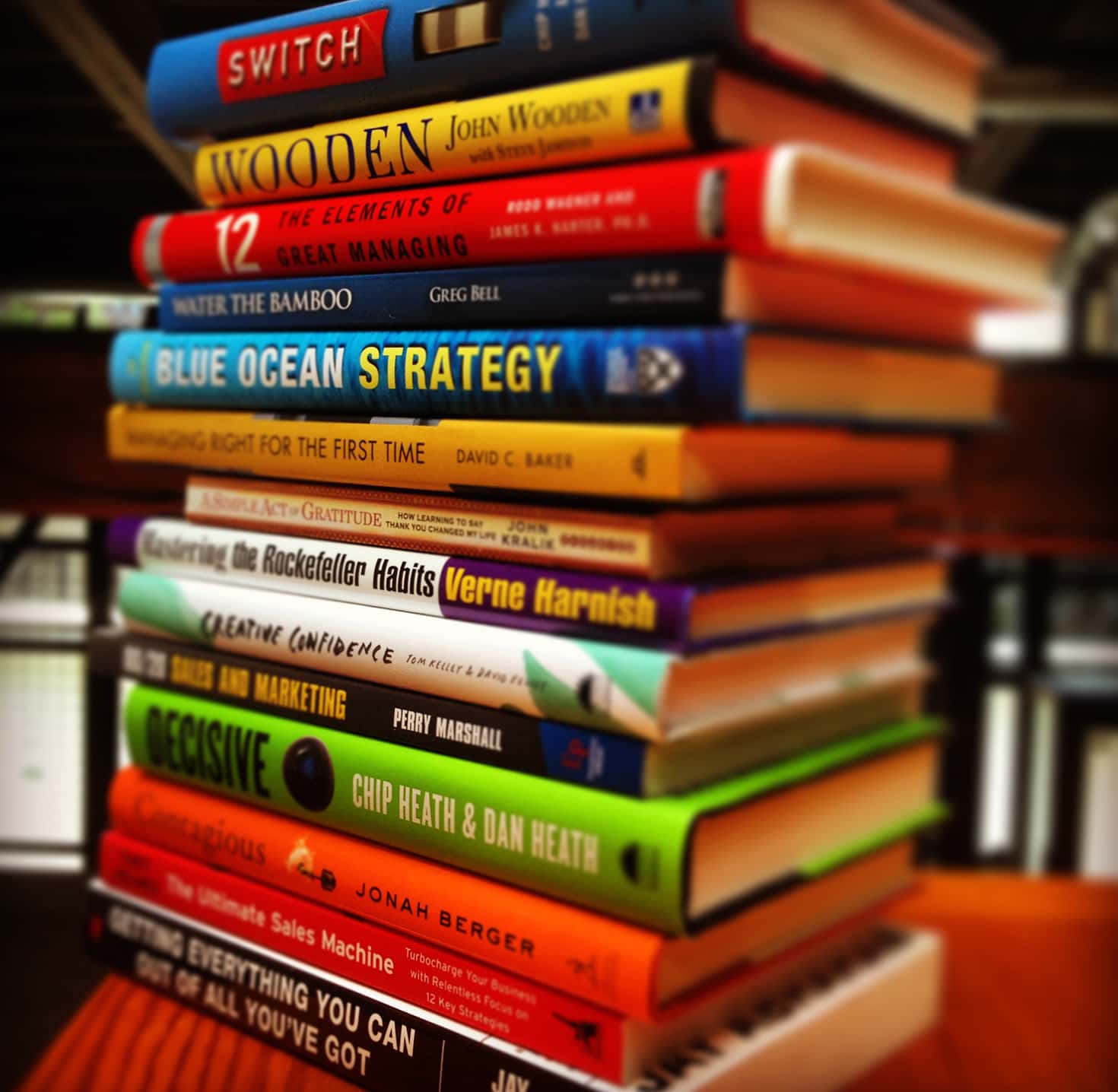
However, as I advanced in my professional career and started to understand how businesses worked, my appreciation for the value of teamwork grew as well. And over time, I did begin to play (and even study) team sports like volleyball and ultimate frisbee. Simultaneously, my nightstand started to become a resting place for books on coaching and business strategy – and my worlds of business and sports began to converge.
I learned an important lesson: What held true in the office was usually transferable to the teams that won on the field. So, inspired by Lillard’s brilliant 3-pointer, here are 6 observations I’ve made from leading teams both on and off the court.
Remember the “Jail Blazers”? In the early 2000s, when the Trail Blazers made the news, it was not for their athleticism but for their criminal activity – fighting in public, drugs, felonies… you name it. While this group had some very real individual talent, the self-serving nature of the “team” ensured that they lost most of their games, and guaranteed the demise of Portland’s basketball hopes for nearly a decade. Which leads to fundamental #2…
The detrimental influence of the “Jail Blazers” malcontent had an echo effect on the team’s revenue for years to come. The graph below illustrates the cost of the “Jail Blazers” in game attendance alone – but that doesn’t even scratch the surface of additional losses in ticket prices, sponsorships, food sales, etc… In short, the franchise lost over $140 million in ticket sales and took nearly 7 years to regain its pre-Jail Blazer success.
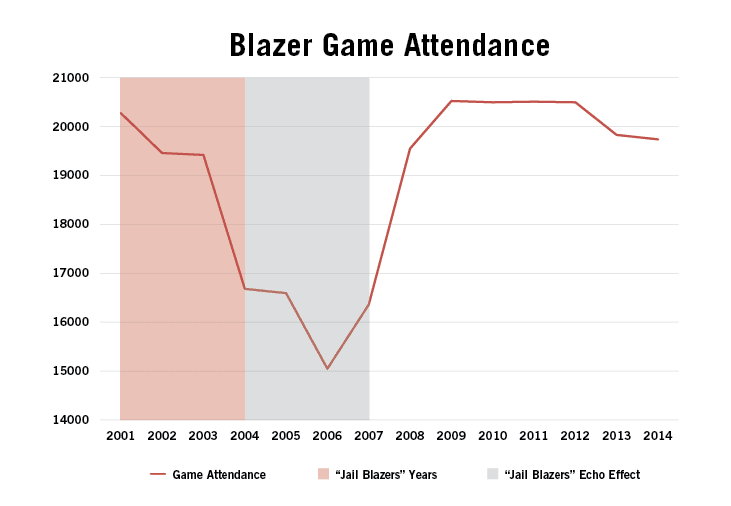
The lesson here is that even the relatively brief duration of this “bad apple” team has had astronomical financial consequences. The same can be said for your business – studies put the negative productivity impact of just one Bad Apple at 30-40%, and we’ve written extensively on the other direct costs of a bad employee. The “Jail Blazers” serve as proof that the implications of a bad hire can be severe – as a business leader, don’t make the same mistake.
When watching that legendary game against Houston, take a look at two of the most dominant players from opposing teams – the Blazers’ LaMarcus Aldrige and Houston’s Dwight Howard. Both are incredible athletes and capable of game-changing plays, but Aldridge conveys a sense of optimism and camaraderie that was missing from the Houston bench. If you watch closely, nearly every game highlights the difference between these two teams – Houston is actually a more experienced team with “better” players…but they seldom lift each other up and elevate one another in difficult times.
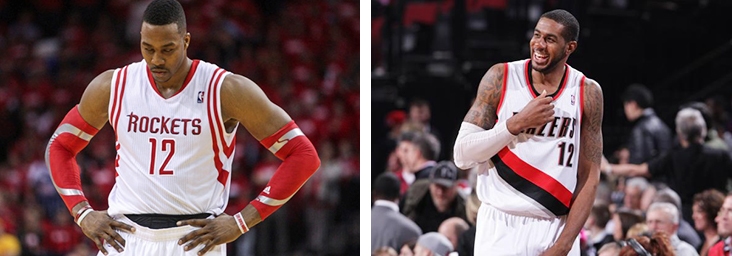
Business is no different. We all have ups and downs; we win sales, we lose sales. However, if you empower leaders to cultivate a culture of mutual respect, camaraderie, and shared objectives, you are setting your company up for success.
Even though Lillard made one hell of a shot, the real story is how the whole Blazer’s roster created that opportunity for him. In the business world, even the best salesperson will do better if they have the full support of marketing, customer service, and operations.
In the video, you can see Lillard streaking across the court, clapping his hands together. That sense of engagement and urgency is the hallmark of a top-performer, whether in the NBA or working as an entry-level employee. And engagement is meaningful to the bottom line: studies show that highly engaged employees contribute more than 30% more to profits than those who merely “show up.”
At the end of the day, the Blazers have a great coach and a team that can execute. While they ultimately fell to another team, their ability to reach as far as they have is a combination of coaching, practice, and culture. Likewise, most businesses have some mix of great players – but it takes a leader with maniacal focus to ensure their team has the right mix of talent, camaraderie, and discipline to win week in and week out.
As a diehard fan, I would rather be writing this season-wrap up about the Blazers’ epic victory over San Antonio… but, for now, I am content with the knowledge that this young team has the potential to grow into a great team like the Spurs. In the meantime, I’m going to focus my game on exactly the same things the Blazers have done right: great coaching, top-notch recruiting, smart strategy, and a laser-like focus on company culture. That’s how my team, Kinesis, will keep on winning.
Get insights like this straight to your inbox.